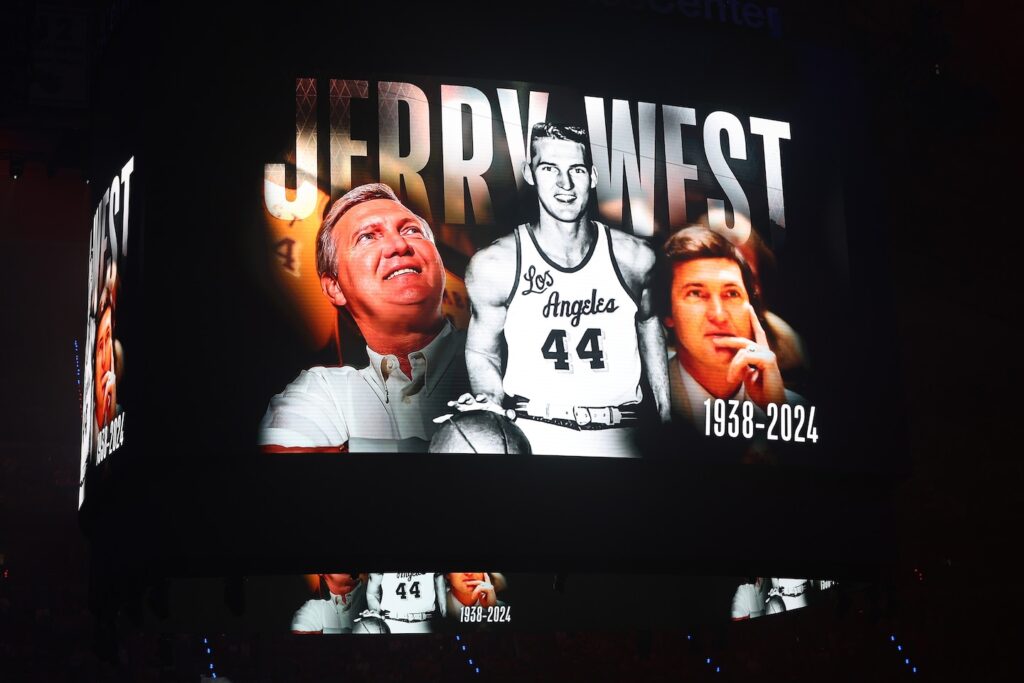Jeff Pearlman is the author of “Showtime: Magic, Kareem, Riley, and the Los Angeles Lakers Dynasty of the 1980s,” which was adapted into the HBO series “Winning Time.”
As I've gotten older, more mature, and more successful in life, I've come to the uncomfortable realization that, for better or worse (but mostly for worse), we all find ways to justify our behavior.
We ran a red light… I had to pick up Amelia from dance class.
I drank too much… but Uncle Joey only turns 37 once.
We see characters in non-fiction books exaggerated in the name of entertainment, but…
Last one. That's me. At least, in some ways it's me. Ten years ago, I wrote a book called “Showtime,” which chronicled the rise and fall of the Lakers in the 1980s. My work was eventually acquired by HBO, and the network aired the resulting show, “Winning Time,” for two seasons. And to be 100 percent clear, I loved almost everything about “Winning Time.” I loved Quincy Isaiah as Magic Johnson and Sean Patrick Small as Larry Bird. I also loved Adrien Brody as Pat Riley and Solomon Hughes as Kareem Abdul-Jabbar. “Winning Time” brought back my favorite era of professional basketball and introduced a generation of young viewers to the men who walked this earth before LeBron James and Luka Doncic. From start to finish, I was blown away by the writing and attention to detail. Early on, I got a call from a producer asking if I knew what material was used for the 1979 NBA Summer League uniforms.
“Because we want to recreate them,” he said.
But amid the constant euphoria, it was the portrayal of legendary Lakers guard and general manager Jerry West, who died this week at age 86, that left me semi-conflicted. As detailed in his autobiography, “West by West: My Charmed, Tormented Life,” he was a man plagued by depression, anxiety, self-loathing and mood swings. In my decades covering sports, I've known two people who made it hard for me to watch their teams play. One was Billy Beane, the longtime general manager of the Oakland Athletics. The other was West.
When the Lakers were on the court, West could often be found pacing, stretching, biting his nails or tapping his toes in the depths of the Forum in Inglewood, California, or sitting in his Buick in an empty parking lot, listening to the game on the radio and pounding his fists on the steering wheel after every missed layup.
He was the team's head coach for three seasons in the late 1970s, and a 145-101 record spoke for success, but he couldn't deal with the insecurity of the job. How could Jerry West, one of the all-time greats, have the patience to teach veterans like Earl Tatum and Dave Robisch the proper technique for a jump shot? The answer is, he couldn't. It nearly drove him crazy.
Actor Jason Clarke is brilliant — better than brilliant — as West in “Winning Time,” perfecting his faint West Virginia accent, confident swagger and love for the Lakers at all costs. There's a scene in the pilot where West explains to team executives that they made a mistake in choosing Michigan State's Johnson over the top pick in the 1979 draft, and that Arkansas' Sidney Moncrief would be a safer choice.
When Jerry Buss (played by John C. Reilly) asks why, West responds with as much seriousness as he can: “He's too tall.”
Bass scoffed at the suggestion, as did others nearby, and West lost his temper and stormed off angrily. He broke his golf club in half and stomped away, groaning, “Pedro, my dick's fucking broken!”
It was amazing, and I still laugh every time I see it on screen. But (ahem) it's not real. That moment never happened. Pedro wasn't there, and while West genuinely disagreed with Johnson's selection (in a rare personnel blunder), he wouldn't have shoved it at Buss on the golf course. The same episode also shows West throwing his 1969 Finals MVP award out of his office window (that didn't happen) and Buss advising him to switch to alcohol that doesn't make his breath smell (that didn't happen).
On the show, West frequently swears, growls, bites and bites. This is great television. For my money, Clark carried the show. But in real life, West was not a swearing, growling, biting and biting guy. West was a burdened, troubled and troubled man who, while he could certainly have good outbursts, mostly internalized his demons. He was also a lifelong basketball fan who embraced the diversity of the sport he cherished.
As the author of the book and someone connected to the show, I've often publicly supported Clarke's version of West with explanations like “it was respectful” and “this is how the media works.” But as I sit here today in the aftermath of West's death, I can't help but ask whether that was being true to myself, or whether, as the guy who got the golden ticket that was the HBO show, I was merely rationalizing an experience I both loved and profited from.
A: I honestly don't know.



